Mulesoft Certification Tutorial- MuleSoft Certified Platform Architect – Level 1
📣 1347 Participants |🎓 574 Reviews | 4.6 ⭐⭐⭐⭐⭐
Before going to the main topic, Let’s talk about Mulesoft.
Mulesoft is a software company that provides an integration platform as a service (PaaS) solutions. It provides a platform for connecting applications, data, and devices with an API-led approach and integration tools.
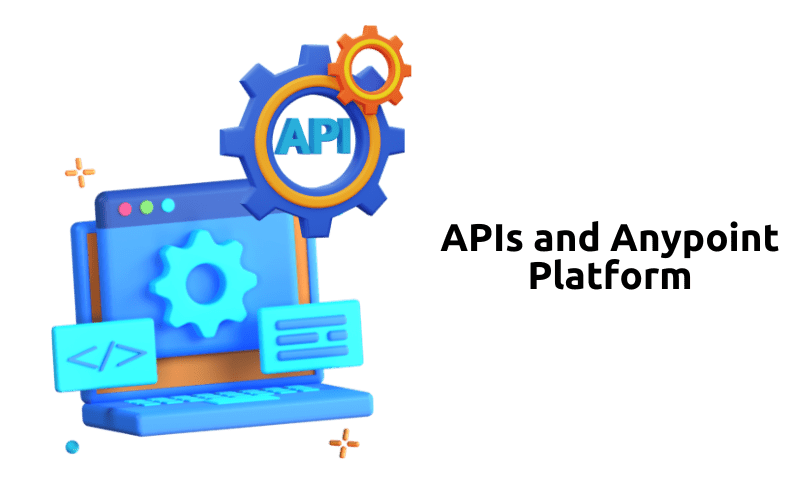
Mulesoft’s core product is Anypoint Platform, an API-led integration platform that enables organizations to quickly and securely connect different applications, data, and devices for use in their business operations.
The Anypoint Platform includes an API gateway, runtime, and development tools. Mulesoft offers several services to help organizations design, build, deploy, and manage API-led architectures.
The Anypoint Platform provides various services to help organizations create, secure, and manage APIs and integration solutions. Platform services include API design, API management, API gateway, API security, API monitoring, API analytics, and API lifecycle management.
The platform also offers a range of tools for developers, such as connectors, data mapping, and data transformation.
What are the different types of Mulesoft certifications available?
For Developer:
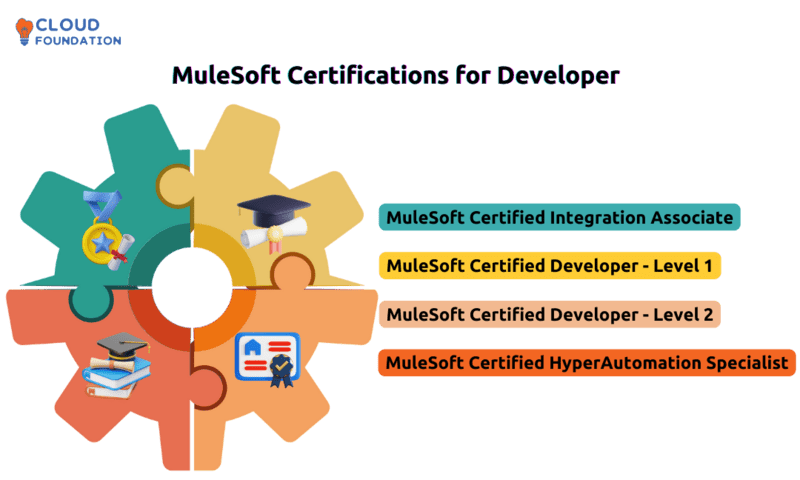
MuleSoft Certified Integration Associate:
A MuleSoft Certified Integration Associate should know core integration and API-led connectivity terminology and concepts to contribute to a MuleSoft project team.
Identify an integration project’s roles, responsibilities, and lifecycle phases.
Understand MuleSoft architects’ and developers’ integration concepts and terminology.
Recognize frequent integration difficulties, break them into their underlying integration use cases, and choose the right technology.
Explain integration development’s technical complexities.
Explain Anypoint Platform’s system integration and API management features.
MuleSoft Certified Developer – Level 1:
With supervision, a MuleSoft Certified Developer – Level 1 can complete basic Mule 4 projects. The MuleSoft Certified Developer – Level 1 exam verifies that a developer can design, build, test, debug, deploy, and manage basic APIs and integrations from Anypoint Platform to Anypoint Studio and back.
Certified candidates can use the MuleSoft-hosted Anypoint Platform to design, build, deploy, manage, and govern a basic API.
Build, test, and debug simple integrations and APIs with Anypoint Studio.
Access databases, files, web services, SaaS apps, and JMS queues.
DataWeave 2.0 fundamental data transformations.
Manage events and errors.
Batch records.
MuleSoft Certified Developer – Level 2:
A MuleSoft Certified Developer – Level 2 should be able to self-sufficiently work on production-ready Mule applications in a DevOps environment in professional software development projects and balance critical non-functional requirements like monitoring, performance, maintainability, reliability, and security.
Expose production-ready Anypoint Platform achieved APIs from Mule applications.
Create modular Mule apps and Maven builds.
Monitorable Mule apps.
Build efficient Mule apps.
Protect stored and sent data.
MuleSoft Certified Hyper Automation Specialist:
A MuleSoft Certified Hyperautomation Specialist can create Salesforce and MuleSoft hyperautomation solutions.
Design and implement solutions employing best practices across the hyperautomation project lifecycle.
Use the MuleSoft Anypoint Platform to design, deliver, and manage APIs for hyperautomation project integrations.
Reuse Anypoint Exchange hyperautomation components.
MuleSoft Composer hyper automates business operations.
MuleSoft Robotic Process Automation can automate human tasks in hyperautomation projects (RPA).
Salesforce Flow hyperautomation.
Use Flow Orchestration to coordinate complex hyperautomation business operations.
For Architecture:
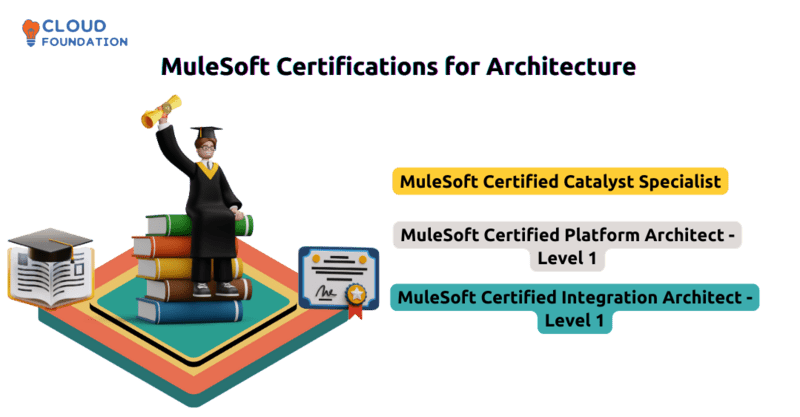
MuleSoft Certified Catalyst Specialist:
Business outcome identification, engagement planning, and composable architecture solutions should be made using Catalyst methodology by a MuleSoft Certified Catalyst Specialist. The MuleSoft Certified Catalyst Specialist exam verifies that candidates can:
Identify and define Catalyst’s key pillars and concepts, including playbooks and delivery approaches, assets and their life cycles, terms of use, types of engagements and phases, delivery models, and typical roles and responsibilities.
Create a logical network of business environment drivers, organizational vision, strategic goals, objectives, KPIs, and initiatives.
Apply Catalyst ideas to architecture to maximize reuse and reuse potential without sacrificing short-term goals.
Create engagement roadmaps for business outcomes using organizational context (driver, goals, objectives).
Explain C4E foundational assets, promoting and sustaining C4E.
Explain Catalyst benefits and adjust messaging to stakeholder interests.
MuleSoft Certified Platform Architect – Level 1:
A MuleSoft Certified Platform Architect should define and manage an organization’s Anypoint Platform strategy.
An architect’s ability to lead the creation of a practical application network from different integration solutions after API-led connectivity across an enterprise utilizing Anypoint Platform is verified by the MCPA – Level 1 test.
Work with business, infrastructure, InfoSec, and other teams to optimize and mold the Anypoint Platform implementation in the organization’s context.
Define how the organization uses the Anypoint Platform with other tools and applications.
Define Anypoint Platform utilization and the organizational and process improvements needed to support it.
Lead the creation of standards, reusable assets, and automation needed for scaling and multi-LoB adoption.
MuleSoft Certified Integration Architect – Level 1:
A MuleSoft Certified Integration Architect should lead an organization’s Anypoint Platform implementation, technical quality, governance (ensuring compliance), and operationalization of integration solutions.
The MCIA – Level 1 test certifies that architects can engage with technical and non-technical stakeholders to interpretnon-functional and functional requirements into integration interfaces and implementations.
Create high-level integration solution designs and advise implementation teams on Mule component and pattern selection.
Choose Anypoint Platform deployment and configuration from the available options (MuleSoft-hosted or customer-hosted control plane and runtime plane).
Create Mule applications for Anypoint Platform runtime plane deployment choices.
To assure solution quality, use standard development methodologies for project preparation, analysis, design, development, testing, deployment, and support.
Advise technical teams on Anypoint Platform integration solution performance, scalability, reliability, monitoring, and operational issues.
Create reusable API and integration assets, components, standards, frameworks, and processes.
There are two other types of certification are available for MuleSoft:
Maintenance
Retired certifications
Maintenance:
Developer:
MuleSoft Certified Developer – Level 1 MAINTENANCE:
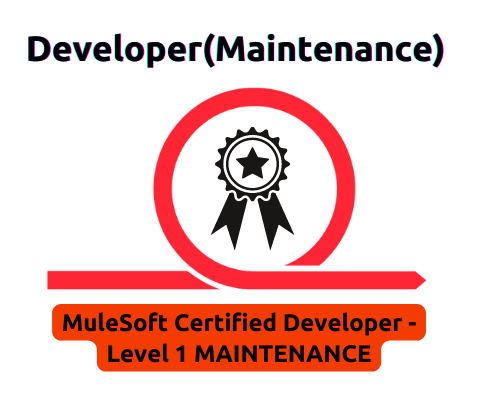
The MuleSoft Certified Developer – Level 1 MAINTENANCE exam verifies that a Mule 4 developer can design, construct, test, debug, deploy, and manage basic APIs and integrations with assistance and supervision.
Architecture:
MuleSoft Certified Platform Architect – Level 1 MAINTENANCE:
The MCPA – Level 1 MAINTENANCE exam verifies that a MuleSoft Certified Platform Architect – Level 1 has maintained the knowledge and skills to define and lead an organization’s Anypoint Platform strategy and create a practical application network from individual integration solutions following API-led connectivity across an organization.
MuleSoft Certified Integration Architect – Level 1 MAINTENANCE:
The MuleSoft Certified Integration Architect – Level 1 MAINTENANCE exam verifies that a candidate still possesses the knowledge and skills necessary to lead an organization’s Anypoint Platform implementation, as well as its technical quality and operationalization of integration solutions.
This includes working with non-technical and technical stakeholders to explain functional and non-functional requirements into integration solutions.
Retired Certifications:
MuleSoft Certified Developer – Level 1 DELTA:
With supervision, a MuleSoft Certified Developer – Level 1 can complete basic Mule 4 projects. The MCD – Level 1 DELTA exam verifies that a MuleSoft Certified Developer – Integration and API Associate (Mule 3) can design, construct, test, debug, deploy, and manage basic Mule 4 APIs and integrations.
MuleSoft Certified Developer – Integration and API Associate (Mule 3):
The instructor-led Anypoint Platform Development: Fundamentals (Mule 3) course and the associated Do-It-Yourself (DIY) activities are the best ways to prepare for the test.
MuleSoft Certified Developer – Integration Professional (Mule 3):
A MuleSoft Certified Developer – Integration Professional should have considerable real-world MuleSoft programming expertise and be able to create and lead complicated Anypoint Platform integration projects.
MuleSoft Certified Developer – API Design Associate (RAML 1.0):
A MuleSoft Certified Developer – API Design Associate should be able to design and implement modular API specifications utilizing RAML 1.0 and Anypoint Platform.
Who should obtain MuleSoft certification?
Anyone working in an enterprise setting or considering a career in enterprise integration should seek MuleSoft certification. MuleSoft-certified individuals have proven their expertise in the MuleSoft platform and can utilize their certification to differentiate themselves in the job market.
Architects and developers:
Developers and architects who use MuleSoft technologies to build enterprise connectors should consider becoming certified. Certification will demonstrate to businesses that you have the technical expertise necessary to swiftly and efficiently construct integrations. It will also exhibit your dedication to technology, which may lead to further opportunities.
MuleSoft Certified specialists are in high demand,
Below are some of MuleSoft’s available job postings:
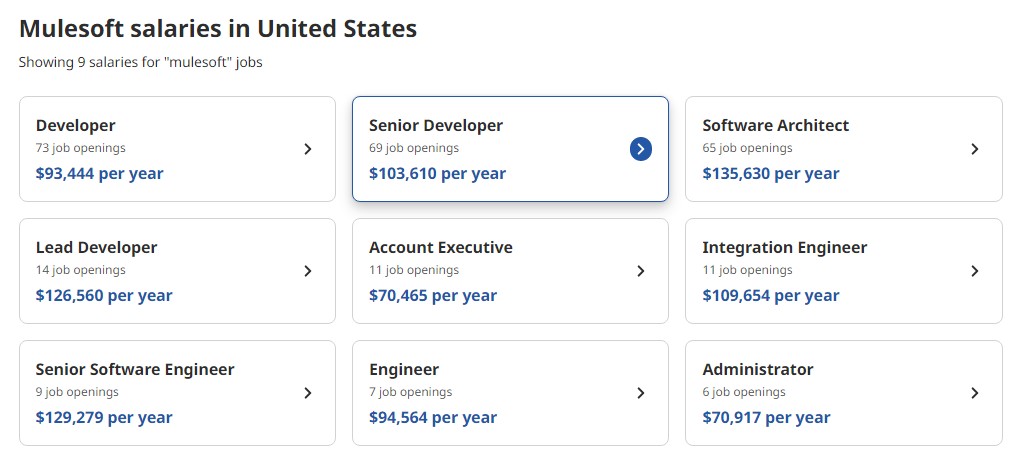
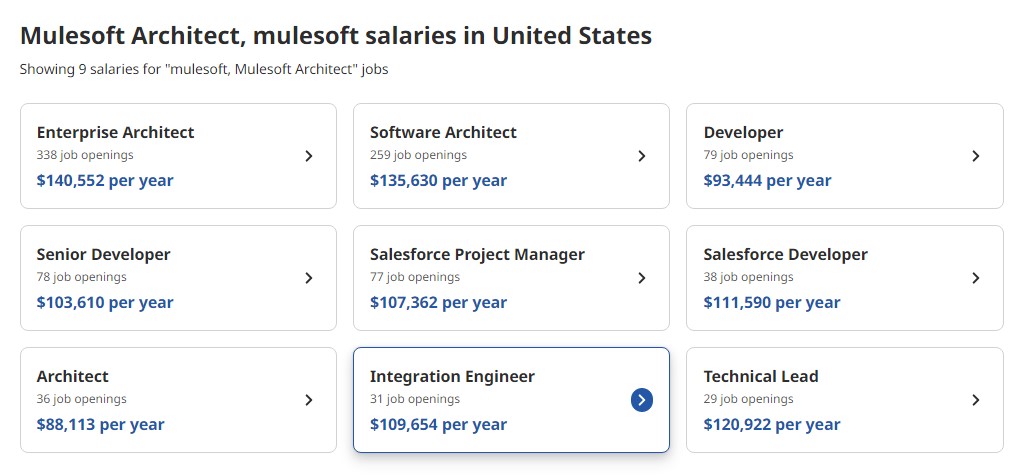
Conversely, there are more openings for a MuleSoft Architect:
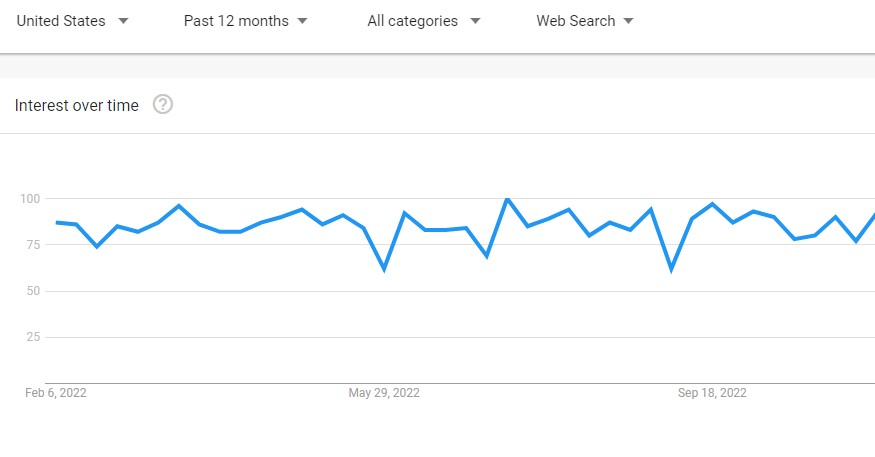
How well MuleSoft performs throughout time-series, is shown in this graph:

How worthwhile is it to become MuleSoft certified?
Yes, MuleSoft certification is worth it. MuleSoft is a powerful enterprise integration platform that connects enterprises’ applications, data, and devices.
MuleSoft certification is an excellent approach for employees to demonstrate their competency in the MuleSoft forum and their commitment to mastering the technology to employers.
With the increased need for MuleSoft abilities, now is an excellent opportunity to get certified and boost your career.
How hard is MuleSoft certification:
It is a challenging exam that demands extensive preparation and effort to pass. Before taking the exam, getting familiar with the platform and its features is critical.
You should also expect to devote significant time and effort to studying and preparing for the exam. The MuleSoft certification is an invaluable asset for any professional interested in a career in the integration and API industries.
It is a comprehensive certification that necessitates considerable preparation and work. Understanding the various levels of accreditation and standards for each group is critical before embarking on your MuleSoft certification path.
MuleSoft certification cost:
Since there is no set price for obtaining a MuleSoft certification, it isn’t easy to calculate an appropriate budget.
MuleSoft certification often begins with a $200 investment.
Process for MuleSoft Certification exam:
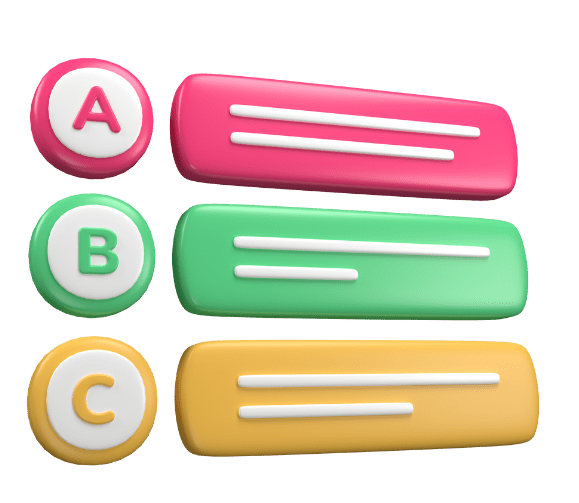
MuleSoft examinations are proctored multiple-choice tests that last 90 minutes to two hours, and the passing score is 70%. Exams can be taken online or at a global testing center.
Exams that are proctored are the industry standard for ensuring identity security. A proctored exam requires candidates to be supervised while taking the exam.
Certifications will be expired after two years from the date of issue.
How to get MuleSoft certification:
Knowledge of MuleSoft architecture and the developer is required to get for the MuleSoft certification exam.
Some conditions must be met to earn a MuleSoft certification:
Knowledge of the Anypoint Platform, including API Design and API Management
Know how to use technologies for integration, like HTTP, REST, SOAP, and messaging services
Familiarity with MuleSoft’s API development tools, like API kit and RAML.
Expertise in one of the languages that can be used (Java, .NET, or JavaScript)
Know how to use Service-Oriented Architecture (SOA) principles in API development.
Have experience building and deploying Mule applications.
Know MuleSoft’s security model and how its authentication works
Know how to use MuleSoft’s Anypoint Studio and Platform.

Divya
Author
Hello all! I am gonna pop you with the information that will make your life easier.



